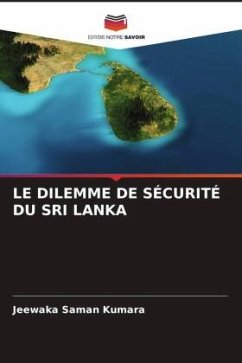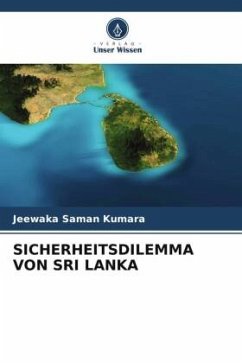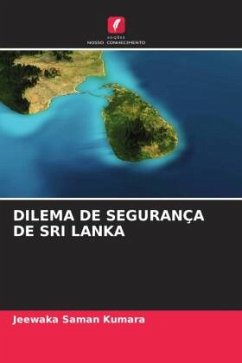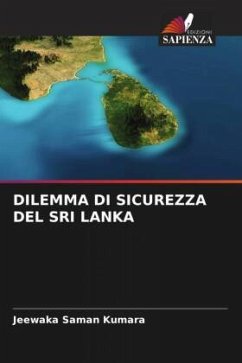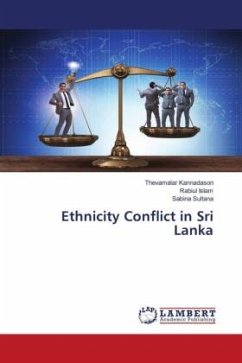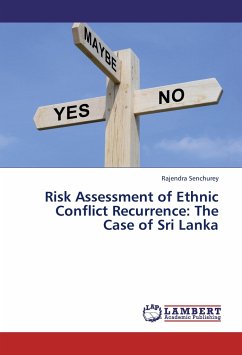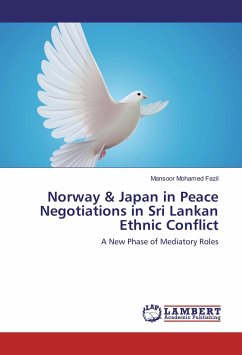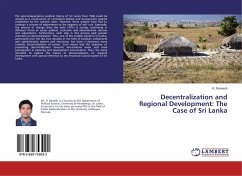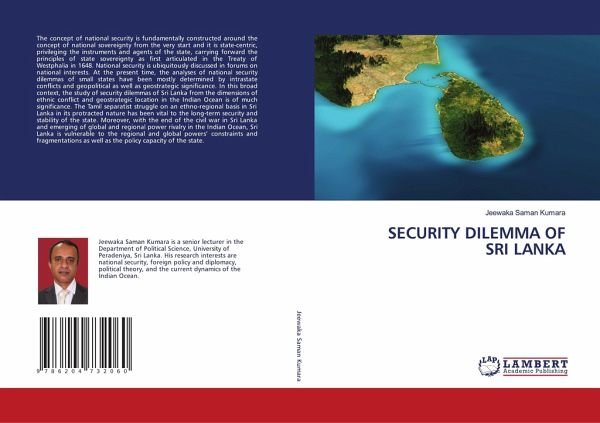
SECURITY DILEMMA OF SRI LANKA
Versandkostenfrei!
Versandfertig in 6-10 Tagen
60,99 €
inkl. MwSt.

PAYBACK Punkte
30 °P sammeln!
The concept of national security is fundamentally constructed around the concept of national sovereignty from the very start and it is state-centric, privileging the instruments and agents of the state, carrying forward the principles of state sovereignty as first articulated in the Treaty of Westphalia in 1648. National security is ubiquitously discussed in forums on national interests. At the present time, the analyses of national security dilemmas of small states have been mostly determined by intrastate conflicts and geopolitical as well as geostrategic significance. In this broad context,...
The concept of national security is fundamentally constructed around the concept of national sovereignty from the very start and it is state-centric, privileging the instruments and agents of the state, carrying forward the principles of state sovereignty as first articulated in the Treaty of Westphalia in 1648. National security is ubiquitously discussed in forums on national interests. At the present time, the analyses of national security dilemmas of small states have been mostly determined by intrastate conflicts and geopolitical as well as geostrategic significance. In this broad context, the study of security dilemmas of Sri Lanka from the dimensions of ethnic conflict and geostrategic location in the Indian Ocean is of much significance. The Tamil separatist struggle on an ethno-regional basis in Sri Lanka in its protracted nature has been vital to the long-term security and stability of the state. Moreover, with the end of the civil war in Sri Lanka and emerging of globaland regional power rivalry in the Indian Ocean, Sri Lanka is vulnerable to the regional and global powers' constraints and fragmentations as well as the policy capacity of the state.



